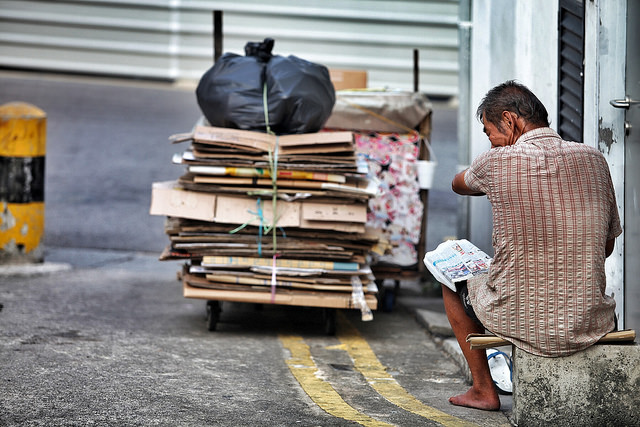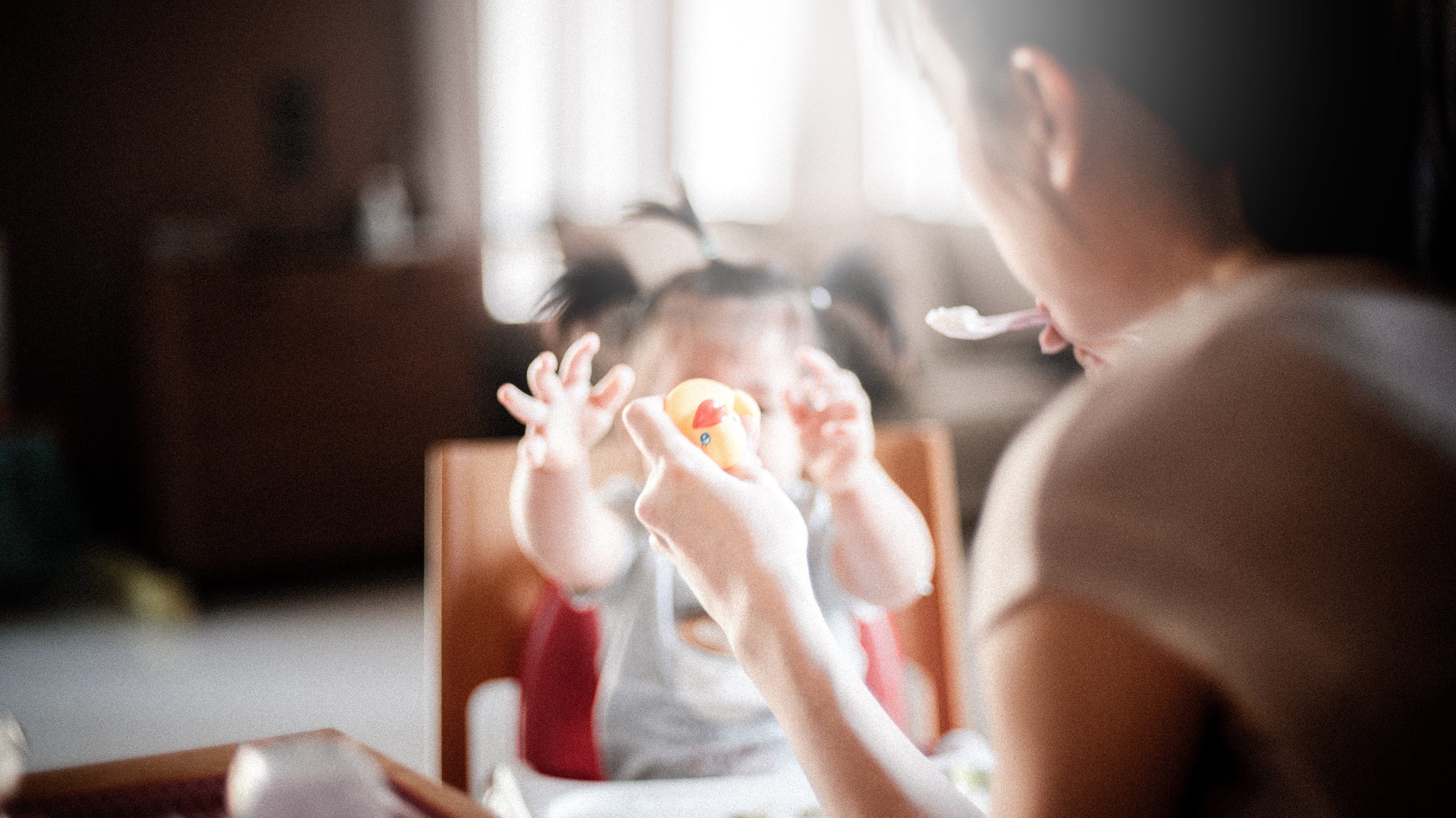It’s terrifying to think about what would be in 10 or 20 years time.
In 10 years time, I would be my late thirties—an age where I can no longer pretend to pass off as a zeh zeh (older sister). I would also probably be constantly reminded of the youth I have lost as I play catch up to the energy of my children.
What’s even scarier is the realisation that my parents would be in their early seventies. That puts them in the ripe old age of retirement, with only slightly more than 10 years left, assuming that they live up to Singapore’s mortality age of 85.
Am I prepared for that? No. And I’m scared.
Will I Be Good Enough?
I’m scared because I don’t know if I can afford to support my parents through the financial perils of old age.
The Seedly Community conducted a survey early this year, where they found out that 81% of Singaporeans give their parents a monthly allowance. More importantly, the survey showed that out of 85 responses, 51 (60%) gave their parents less than 20% of their take-home pay.
There's no 'right' answer to this as it really depends on an individual's earning power, how much our parents need, and most of all, our individual priorities.
I’m glad that my parents never dictated the amount of allowance I have to give them every month, but I have always felt that I am not giving enough.
On one hand, it’s comforting to know that I measure up to most Singaporeans in terms of the monthly allowance I give to my parents (slightly above 10% my take-home pay). On the other hand, I feel guilty for not being good enough to afford the luxuries that my parents deserve.
Because I am only giving them what I can afford, there are often times I question myself if the few hundred dollars I give is enough and there’s always a small part of me that beats myself over not being able to give more.
A recent ad by NTUC Income perfectly encapsulates the predicament I, and possibly many young Singaporeans, am in.
Just like the NTUC Income’s ad, many of us turned out normal. We get by with hard work and discipline, but we struggle with having to make difficult decisions simply because we cannot afford The Best.
Coming from a middle-income family and having friends who come from both ends of the spectrum, I knew what were luxuries and what I should be grateful for. Most of all, I know my parents worked hard to provide.
I know I have been given the best that my parents can afford because I have never had to live a day on a hungry stomach, wear torn shoes to school, or borrow textbooks to study. We could even afford the occasional vacations.
There are so many other signs that I cannot possibly list. The fact that my parents are so still so readily available to be my safety net after 28 years is telling enough.
Because of all the love that they have poured into me, there's this unspoken sense of responsibility that goes behind me wanting to give them a cut of my salary every month, and in wanting to support them when they are, in my eyes, in a stage of their life where they should just enjoy life.
Knowing them, my parents are the kind of people who would rather carry the weight of supporting themselves on their shoulders than burden others (their children). But I see their livelihood in retirement a responsibility I hold myself accountable for.
Some call it filial piety, a virtue that has earned a pretty bad rep for causing a lot of guilt and unhappiness. But I want to be filial not because it's 'right' or because I'd feel guilty otherwise, but because I truly appreciate what they have done for me.
If anything, I feel guilty because as much as I want to be a filial daughter, I don’t know if my best will be enough.
The ‘Guilt’ Of Not Giving Them The Best
Stressful is an understatement when you are sandwiched between having to care for ageing parents and the responsibility to contribute to the ever-decreasing fertility rates (having children), while juggling the pressure of working in an ultra-competitive working landscape, and living in a place that’s internationally recognised as one of the most expensive cities to live in in the world.
The pressure is suffocating if one were to look at all the numbers.
Take for instance this chart from Moneysmart, which budgeted the potential costs of living in Singapore per month.
Screen Capture taken from Moneysmart
Let’s assume that the accommodation costs for rental are costs for house bills (utilities, internet, etc.) and for insurance instead. A ‘cheapskate’ lifestyle will set you back at almost $1200 a month.
Assuming that you earn $3,000 a month, you will be taking home $2,400 after CPF deductions. After the monthly expenditures, you will be left with around $1,200.
If you were to set aside just 10% of your take-home pay as an allowance for your parents, that will take another $240 off, leaving you with $960.
At first glance, $960 seems like a considerable amount of savings a month, but we haven’t taken into consideration many other expenses. Food alone will easily take up another $100 to $300 for most average Singaporeans, depending on lifestyle.
We haven't included any travel expenses. Neither have we taken into consideration all the birthdays, weddings, housewarmings, and baby showers that we will probably spend more on as our generation edges into marriage and parenthood.
Even if one is highly disciplined in saving that $960 every month, that adds up to only about $11,500 a year. Which, if we look at the numbers that SmartParents put together, is enough to get us through a pregnancy with $3,500 to spare.
Image Credit: SmartParents
However, these are meagre sums compared to the amount of money you would need to spend on raising a child.
To put things in perspective, one would need to save diligently for 12 months just to comfortably afford giving birth to a child. Subsequently, the costs will continue to increase as the child grows, which by SmartParents’ estimation, will cost around $670,000 to raise one child in Singapore.
Of course, these are all estimates and in reality, whether it's the costs of a wedding, a new home or of having children would have been split between a couple. But these are all still very scary numbers.
Which brings me back to the pressure of providing. Especially when we are sandwiched between having enough to build a family of my own and supporting our ageing parents through their retirement.
I Don’t Even Know Where To Start
Admittedly, I am sheltered, because my parents never bothered me with their retirement plans.
Nonetheless, I am concerned and wish to help.
However, I don’t even know where to start because I struggled to make sense of financial planning and of things like insurance myself. Even if I had that knowledge, it is such a difficult conversation to initiate.
Our culture isn’t one where we talk about difficult topics, like money. We don't have the vocabulary to discuss such topics and it is because of this history that makes it hard to go "mum/dad, let's talk about your retirement." It’s awkward and feels a little too heavy to talk about.
Another colleague faced a similar problem, where no matter how much he wants to help his mum plan for her retirement, she just don’t seem to be comfortable enough to be honest about what she had planned.
Even with persistent persuasion to find out more, his mum brushed him away whenever he asked, assuring him that she’s got it settled. This only makes him worry more because in the event that anything happens to her, it will still be his responsibility to be there and to support her.
“I don’t need to plan for her, but at least I can put in the figures and help her project into the future, then at least, we can start now and be better prepared for the future,” he explained.
Passion Vs. Practicality
It also doesn’t help when many of us struggle with making a decent living while trying to chase our passions.
Our generation is the generation that has been brought up to believe that the world is our oyster. Many of us are dreamers or at the very least, we are a generation who do not wish to ‘settle’. We prioritise job satisfaction and fulfillment over a high salary.
That is exactly how I have led my life for the most part: Going for jobs that I feel passionate about, not too concerned about the pay I get as long as I can get by.
I lived my life in that ‘passion bubble’ and I've spent my youth proudly announcing my pride in chasing passion. But it was the wedding and home ownership bills that made me realise how misguided I have been. The harsh reality is that at the end of the day, money is important.
Reality of Being The Sandwiched Generation
Just ask around and you’ll realise how many young Singaporeans have become disenchanted by the reality of life in Singapore, not only because of the constant and consistent grind for money, but because we become increasingly aware of the pressure to live up to expectations; To provide.
I’ve seen how my mother had painstakingly saved up not just for herself and my dad, but also for my brother and I. And it is my mother’s financial prudence that I wish to emulate, but I don't know if I can when everything is so expensive.
I do not wish for my inability to earn, save, or plan to become a problem for my partner or children. And I certainly do not want my existence, should I become physically incapable of caring for myself, to become a financial burden for my loved ones in the future.
Although, looking at all the numbers that is required to support my parents, myself, and my future children, I worry about not being able to achieve that.
I want to be a filial daughter to my parents and a role model to my children. I want to give my loved ones the best that they deserve, but it's a constant struggle to know whether my best is enough.
Also read: Work To Live, Or Live To Work? Why So Many Singaporeans Feel Lost In Life.
(Header Image Credit: Tanaphong Toochinda on Unsplash)
Opinions expressed in this article are merely opinions of the writer and are not meant to be representative of Singaporeans.
Dear Government, I love Singapore but I don't see how I can survive here when I'm in my sixties. From a tiny red dot to a thriving nation, Singapore has come a long way. I’m proud to be Singaporean and thankful for the many benefits we enjoy from safety and security to having (largely) equal opportunities and a powerful passport. The nation has built up a playground for a comfortable life, but at times I wonder if we are getting too comfortable. There’s a well-known Chinese saying, “打是疼,骂是爱,” which means to hit or scold is to love. Akin to a naggy mother’s love, Singaporeans complain a lot about our country and government only because we care enough to. We won’t bother voicing out our dissatisfactions if we were nonchalant, and nonchalance isn’t something a country want in their citizens. We hear many stories of Singaporeans migrating overseas for greener pastures, but there are as many Singaporeans who choose to stay. While the grass is always greener on the other side, we also believe in being appreciative of the good things we have here. This tiny island has been our humble abode from the day we were born and we will always see her as home. Which is why even though I am no political writer, I feel it important to speak out on behalf of fellow young Singaporean adults who are disgruntled with our government but can never quite put into words why we feel that way, or who fear treading onto this sensitive territory. Our leaders need to know that we are not complaining merely because we love to complain, but it’s the only way we know how to (and dare to) fight for a home that we can confidently say we are happy with.We Are Worried For Singapore’s Future, Our Future
As a young Singaporean adult of a ‘lower SES’, I fear that my country is going to be too expensive to live in, to raise a family in and to retire in. Our fertility rate is at a new 7-year low and it is definitely not because there’s no space to bang or that the government isn’t trying hard enough. I am of a fertile and marriageable age but I am not contributing to Singapore’s fertility rate; and it isn’t for my lack of a partner or drive either. The conventional life goals of getting married, buying a house, and having children are milestones I eventually want to reach, but they all seem so daunting and impossible.
What Retirement Life?
I look at the hunched back elderly with a head full of white hair, struggling with piles of dirty dishes at coffee shops. I notice the bony limbs, sunken cheeks, and wrinkled skin of this drink stall auntie at my neighbourhood coffee shop and how she would get tutted at for getting drink orders wrong. This elderly auntie messes up often but her sincere, apologetic voice and embarrassed expression is telling of the effort she puts into doing her job as best she could despite her frail body and poor memory. My heart aches.
Rich Nation, Poor People
Singapore has close to a trillion-dollar reserves but we can't afford to have kids. We have so much money but we still have citizens who fall through the gaps of welfare aids and elderly who continue to live below the poverty line. Our nation is an extremely wealthy one. We have the money but our strict parents place ridiculously tight restrictions to the usage of this wealth, our wealth. I do not expect the government to deplete our reserves. The importance of having savings and the complications of dipping into it is not lost to me. However, as pointed out by Chris Kuan in a Facebook post, IMF’s opinion is that a 27% of our GDP or S$113 billion will be a good enough amount of reserves, and MAS' foreign exchange reserves as of Jan 2018 are already S$369b or 88% of GDP.https://www.facebook.com/chris.kuan.94/posts/774990799357677
In other words, our reserves are more than 3 times the prudent limit. So what are we saving for? I quote NMP Kuik Shao Yin, “how much surplus is enough?” Idealism VS pragmatism, being excessively prudent VS investing in the people today: how much is enough savings before the children of our extremely wealthy family, can reap the benefits from these savings? I am well aware that there are many complexities to our laws, policies, and schemes. I understand that one action can cause a ripple effect that which will shift the economy and impact us and our livelihood. Being Singapore’s government is not easy and the decisions made thus far are backed by facts and figures. I have faith that the decisions made thus far weighed all possible options and identified the lesser evil. However, I quote NMP Ms Kuik again, "Every tilt towards the side of pragmatism is simultaneously a tilt away from the side of our ideals.” So, dear Government, "when will it ever be the right time to tilt our balance just a little more towards our ideals rather than always towards what’s pragmatic?" Can you let us continue believing that you will lead us to better days?
